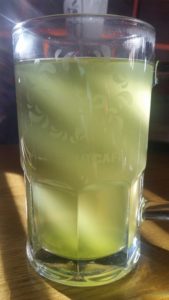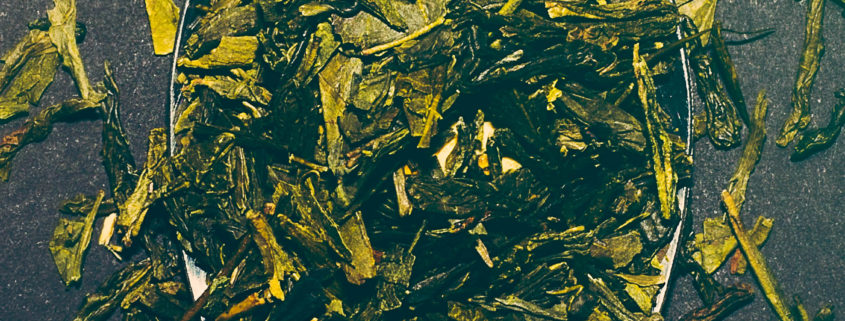Green Tea for Good Health
What is the mystic of green tea? As early as third century B.C. there are record of tea consumption. There are 3 types of common tea: green, black, and oolong. Green, black, and oolong teas all originate from the same plant leaf, Camellia sinensis, but have been processed differently. Texts from the third century A.D. suggest tea was used medicinally to alleviate depression, digestive issues, and nervous conditions. Green tea has been extensively studied and may have health benefits!
Green tea has been used in traditional Chinese and Indian medicine for centuries because of its perceived health benefits. Since green tea is only slightly processed it is full of its natural polyphenols, which include flavanols, flavandiols, flavonoids, and phenolic acid. All of these naturally occurring chemicals are micronutrients in our diet and the flavonoids are particularly helpful antioxidants. The micronutrients nourish your body while antioxidants help prevent cell damage.
Here are some health conditions green tea may be beneficial for:
- atherosclerosis (heart disease)
- high cholesterol
- many types of cancer (bladder, breast, ovarian, colorectal, esophageal, lung, pancreatic, prostate, skin, stomach, and more)
- inflammatory bowel disease (IBD)
- Diabetes (type 1 and 2)
- liver disease
- weight loss
To make green tea at home, brew the tea for about 5 minutes in hot water. You can also drink your tea cold or take advantage of the bottled teas. Many coffee shops serve a variety of teas (locally, try All About Cha), you can by bagged teas at you local grocery stores (Bigelow, Tazo, Lipton, etc), or purchase loose leaf from specialty stores (Teavana, Republic of Tea). You may also like to try matcha, ground green tea leaves instead of whole brewed green tea, described to have a more intense sweetness and deeper flavor. Green tea and matcha does have some caffeine, 35 mg per 8 ounces compared to coffee’s 150 mg. Unlike coffee, caffeine in tea doesn’t stay proportional to its serving size. If 8 ounces of coffee contains around 150 mg of caffeine then 16 oz contains around 300 mg; but 1 tea bag brewed in 8 oz or 16oz will both only contain around 35 mg of caffeine! Consider drinking 2-3 cups a day of unsweetened or lightly sweetened green tea to experience some of its health benefits. -HM


